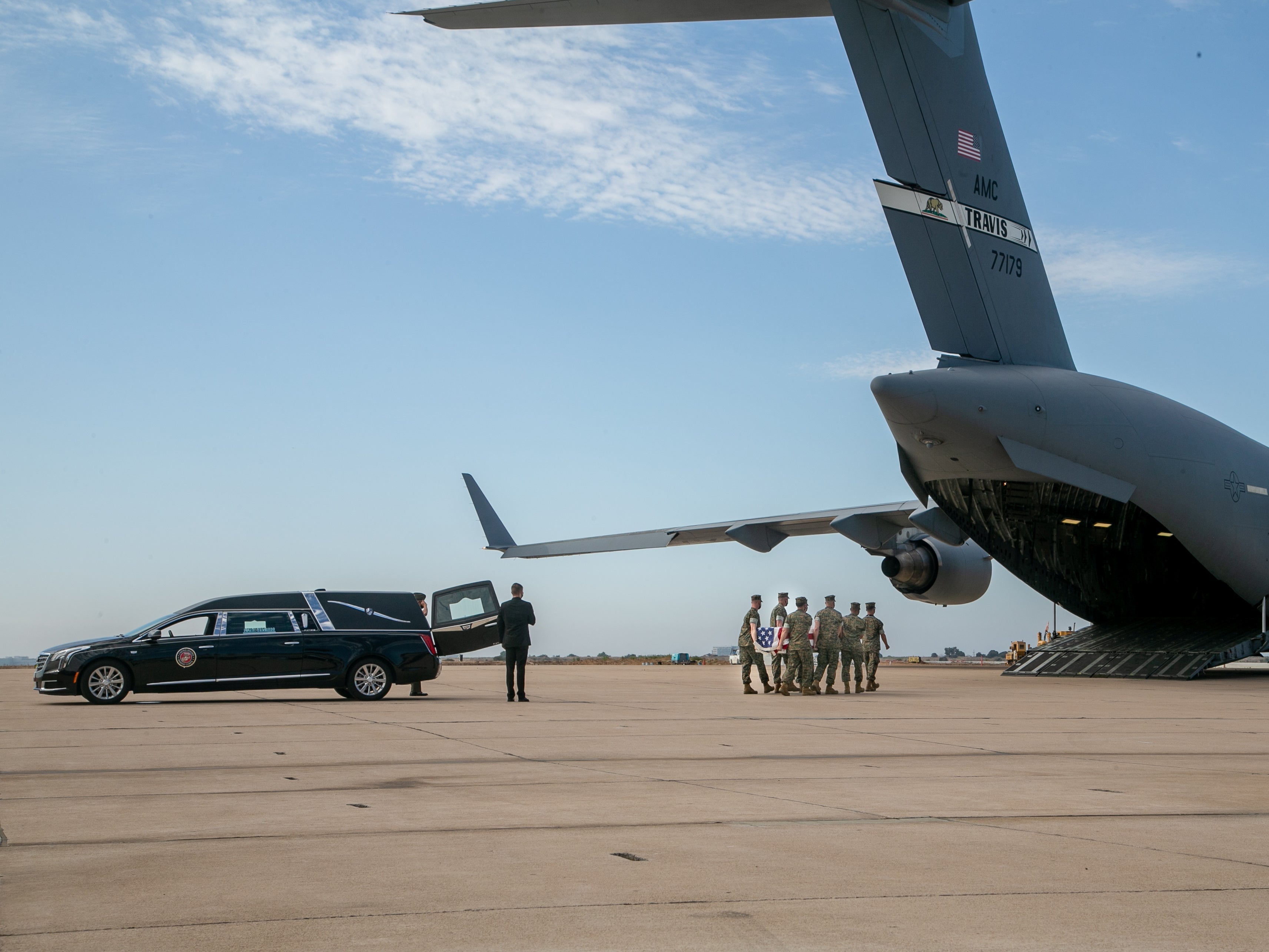Drowning of nine US marines blamed on Covid burnout
Changes to communications and maintenance policies expected after duel probes into deaths

An investigation into the deaths of eight US marines and a navy corpsman who died in the sinking of an Amphibious Assault Vehicle (AAV) in 2020 were reportedly blighted by Covid burnout as well as miscommunications, according to reports.
The investigation, which was commissioned by the US marine corps and released on Wednesday, found several issues with command structures, vehicle maintenance and false assumptions before the sinking of the 26-ton AAV on 30 July 2020.
During a training drill off San Diego, California, the situation unfolded after the AAV took off from the USS Somerset and water started to fill the vehicle, which had 16 service members on board.
Although seven US marines were rescued, eight others and a navy corpsman were stranded on the sinking AAV and died. The incident led to at least two investigations which have been made public.
Lt Gen Carl Mundy III, allegedly referring to the demands Covid restrictions placed on the US marines, wrote: “The claims on their time and attention surfaced in a number of interviews with several senior officers who described the conditions during this period as second only to their experience in combat.”
The senior US marine also reportedly referred to fatigue from the military’s deployment to the southern US border and increasing tensions with Iran as contributing to the July 2020 tragedy.
The report – which was one of two investigations carried out by the US marine corps and US navy into what went wrong that day, and published fully on Wednesday – said no safety boat had been assigned to the AAV, among a number of other failures.
An earlier summary of the probe by the US marines found that it took 45 minutes for the rescue to begin after the water began entering the vehicle, as the The San Diego Union-Tribune reported in March.
However, the US navy has ruled out communication as being at fault in the disaster, the paper added.
Both reports were said to be largely in agreement and, according to USNI News, a number of recommendations are being put in place by the US navy to prevent a future incident.
“This tragedy should have never happened,” Vice Adm Roy Kitchener, a naval commander for the Pacific said. “We will not let the lives be lost in vain. We have learned from this, and we will permanently improve the way we plan and execute amphibious operations”.
Subscribe to Independent Premium to bookmark this article
Want to bookmark your favourite articles and stories to read or reference later? Start your Independent Premium subscription today.

Join our commenting forum
Join thought-provoking conversations, follow other Independent readers and see their replies